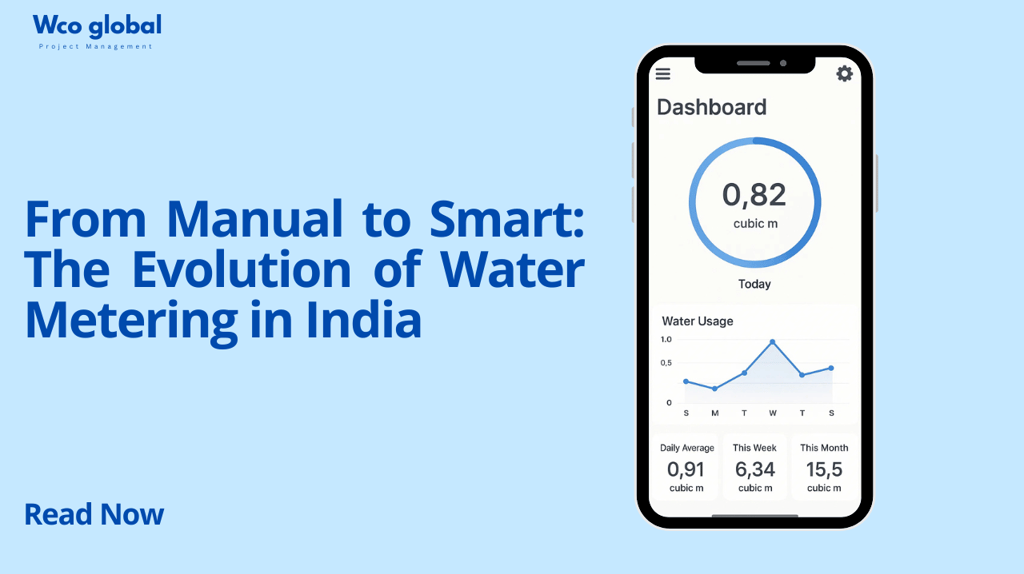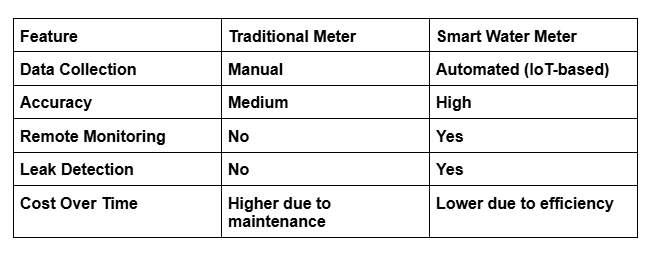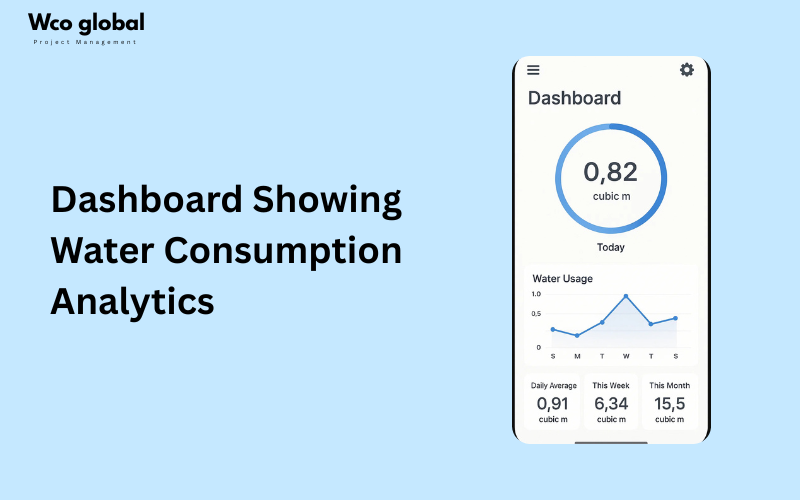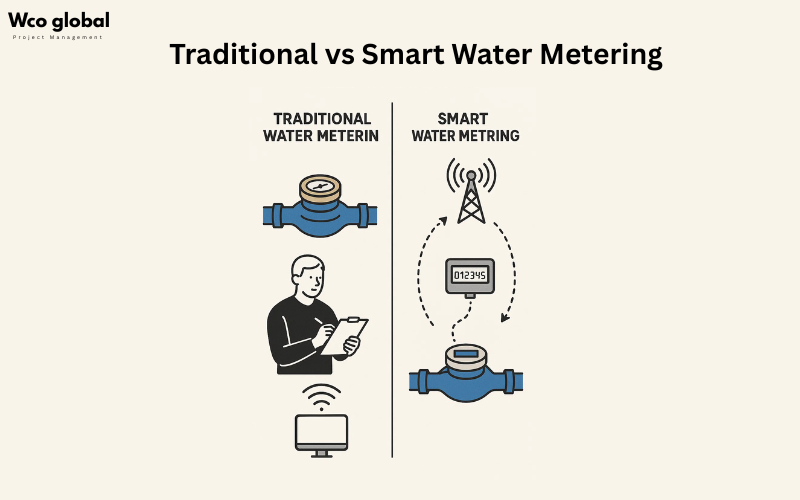From Manual to Smart: The Evolution of Water Metering in India - WCO GLOBAL
Discover how smart water meters are transforming water management in urban and rural areas. Learn about benefits, working, and future prospects in sustainable water solutions.
WCO GLOBAL
5/21/20253 min read
In a world facing increasing water scarcity, smart water meters are emerging as powerful tools for efficient water management. These modern devices offer real-time monitoring, accurate billing, and help reduce water waste — making them vital for both consumers and utilities.
But what exactly is a smart water meter? How does it work? And why are cities, municipalities, and even individual households adopting this technology?
Let’s explore the answers in this guide.
What Is a Smart Water Meter?
A smart water meter is a digital device that automatically records water consumption and transmits the data to a central system through wireless or IoT-based technology. Unlike traditional meters, it does not require manual reading, reducing the chances of errors and inefficiencies.
How Does a Smart Water Meter Work?
Smart meters operate using sensors that measure the flow of water through pipes. These measurements are transmitted via:
RF (Radio Frequency)
NB-IoT (Narrowband Internet of Things)
LoRaWAN technology
The data is collected and sent to a cloud-based platform where it can be analyzed for trends, alerts, or billing.
Key Benefits of Smart Water Meters
1. Accurate Billing
No more guesswork. Smart water meters provide precise usage data, eliminating billing disputes.
2. Leak Detection
Smart meters can alert homeowners or utilities to abnormal water usage, helping identify leaks early and prevent major losses.
3. Real-Time Monitoring
Users can track daily, weekly, or monthly water consumption via a mobile app or dashboard.
4. Sustainability
By making consumption transparent, these meters encourage users to conserve water, contributing to environmental sustainability
5. Operational Efficiency for Utilities
Utility companies can manage demand better, detect illegal connections, and streamline maintenance through data analytics.
Where Are Smart Water Meters Being Used?
Smart meters are being adopted across:
Urban residential areas
Commercial buildings
Government smart city projects
Industrial zones
Rural water supply systems
India’s smart city mission and state-level reforms are pushing municipalities to adopt such technologies for better resource planning
Smart Water Meters vs Traditional Meters
Future of Smart Water Metering in India
India faces serious water management challenges. Smart water meters offer a scalable solution for both conservation and operational control. With increased government focus on digital infrastructure, smart metering is expected to become the norm in the next decade.
Emerging trends:
Integration with AI-based analytics
Use of blockchain for data security
Smart meters as part of energy-water nexus systems
Challenges in Adoption
While the benefits are clear, smart meter implementation also faces some hurdles:
Initial installation cost
Connectivity in remote areas
User awareness
Data privacy concerns
However, with the long-term cost savings and environmental benefits, these challenges are being steadily overcome.
Final Thoughts
Smart water meters are more than just a tech upgrade — they are a necessary step toward a sustainable future. Whether you’re a homeowner, a utility provider, or a policymaker, embracing smart water management solutions is the need of the hour.
At WCO Global, we are committed to delivering innovative and efficient smart metering solutions that empower communities, industries, and governments to manage water more responsibly. As India moves toward smarter cities and sustainable infrastructure, smart water meters will play a key role — and we’re proud to be part of that journey.
FAQs
Q1: Are smart water meters safe to use at home?
Yes, they use low-frequency wireless communication, which is safe, well-regulated, and widely adopted globally.
Q2: Can I monitor my water usage daily?
Absolutely. Most smart meters provided by companies like WCO Global come with user-friendly dashboards or apps for real-time tracking and insights.
Q3: How much does a smart water meter cost?
The cost varies depending on features and connectivity type but is usually offset by long-term savings in water bills and leak prevention.
Q4: What is the lifespan of a smart water meter?
Typically, 8 to 15 years, depending on the model, usage environment, and maintenance.









Let’s Keep in Touch
contact@wcoglobal.in
Subscribe to our newsletter
+91 8287488244
